#villainy vie
Text

#Scared for this one#Who else is excited for the finale on Saturday?#Bill Cipher#BillSweep#Emperor Belos#BelosSweep#disney#disney villain vie#polls#tumblr 2023#tumblr 2023 disney villain vie#villainy vie#competition#disney villians#The owl house#gravity falls
60 notes
·
View notes
Text
Spiraling Upwards (The Price Of Power)
Repetition is the bread and butter of She-Ra and the Princesses of Power. The series is about cycles of abuse and trauma, and the tragedy inherent in that. It's about breaking out of those rythms, and to do that, it needs to establish what is holding its characters back.
But, showing the same thing over and over again is boring. It's stale, and overplayed, and stale, and overplayed, and stale. See what I mean?
Season three of the series shakes things up. It is a masterclass in twisting a formula to its breaking point, and that starts with The Price Of Power.
Let me explain.
SPOILERS AHEAD: (She Ra and the Princesses of Power)
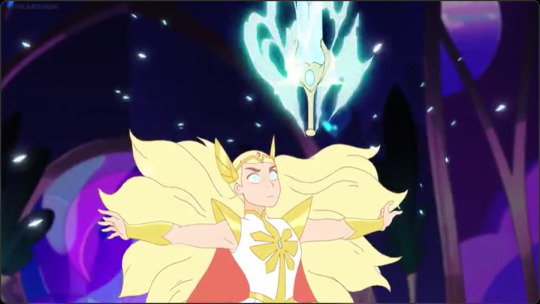
The title of this episode has so many meanings that it's impressive. The price of power is what it says on the tin, but it could relate to almost any character in this.
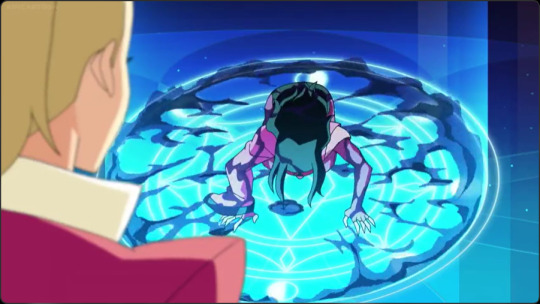
Shadow Weaver finally has her villainy catching up to her (side note, the animation of SW's magic side effect, which I will be referring to as "death juice", is stellar), and it is sapping her life. Catra is realising that her security wasn't as solid as she thought. Adora is making a Faustian bargain with her abuser. Even Angella is weighing up decisions about her family and her kingdom.
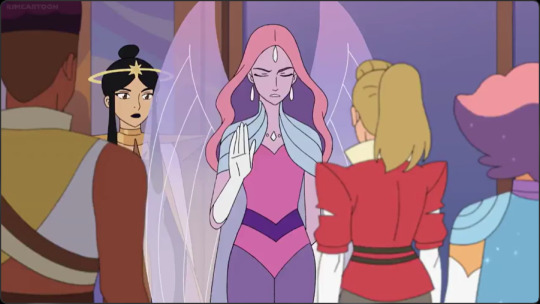
Angella's compete lack of willingness to let Adora near the source of her trauma sets her up as an actual maternal figure for Adora, rather than the simple source of authority that she has been up until this point. Remember this, it will come up later on in the season.
That reframes the conflict between Angella and Shadow Weaver's conflict, turning it into mother vs mother, and their ideologies come into conflict. Altruism vs selfishness. And, with that in mind, I'd like to do a shot breakdown of that scene.
The principle I will be using here is screen presence. Typically (I am using the word "typically" here because this isn't a rule, its a generalisation. There are exceptions), the person who takes up the most of the screen has the most control in the scene. This stems from a few places, but mostly it's just that humans are hardwired to associate "big" with "powerful", so the person who is the largest in your perspective has the most power.

Stable, wide shot. Nothing is really happening yet, Shadow Weaver is learning her surroundings and how trapped she is. She is small, and crouched, and boxed in by that barrier and forcefield. Simple stuff.
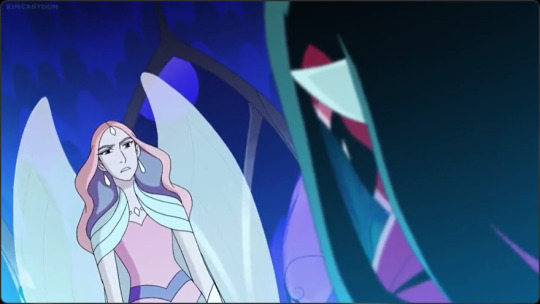
This shot is diagonal, bending backwards so that the audience can look over Shadow Weaver's shoulder at Angella. The two are roughly equal in screen presence, so the angle sells the power dynamic, mostly. It is a bit up in the air at this point, the audience isn't sure which way this interaction will go.

"This is a prison?"
"Why does everyone keep...? Of course this is a prison."
Look who's the largest now. Shadow Weaver looks down on Angella, as she finds a crack in her psyche, and the queen reacts predictably. Now Shadow Weaver has a weakness she can exploit, and she takes control.

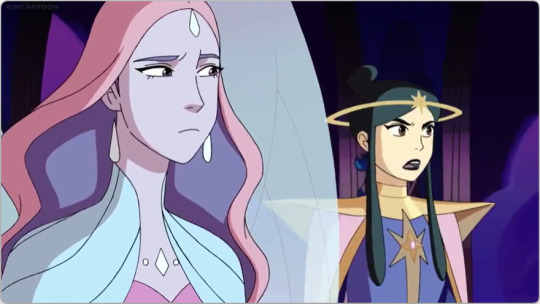
We are closer to Shadow Weaver than either Angella or Castaspella, reflecting the immediate change in dynamic. Now Angella and her sister-in-law vie with each other for control, disorganised against a monolithic force.

These two are powerless against her. She frames them in the smallest possible space, her very presence confining them and removing their agency.
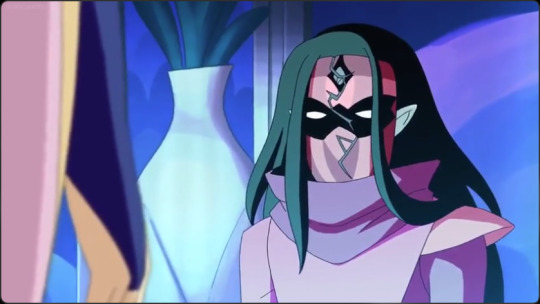
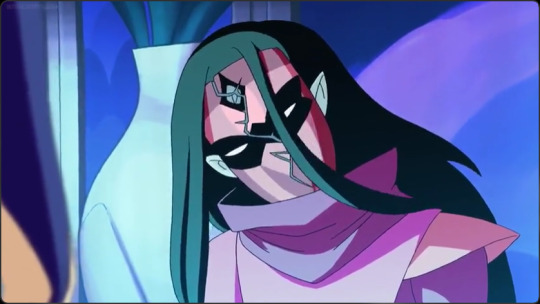
This should be Castaspella taking control. She accuses Shadow Weaver of something concrete, but Shadow Weaver takes that away. The camera draws in, removing Castaspella from the frame, literally siphoning off her control of the scene.
This scene wasn't the point of this post, but I felt it needed a little more time, as it shows just who Shadow Weaver is. She is a parasite, who feeds on other people's trauma and wounds. She leads with the fact that she has hurt this woman's daughter, then plays on her deceased brother, then turns that same blade into Castaspella.
It is also worth noting that this is Shadow Weaver at her worst. She has been given a chance to try something new, to gain empathy and healing from people who would probably give it to her if she was honest with them. But Shadow Weaver is two things: cruel, and ambitious. She is awful to the people she needs, in order to get to the person she wants.

That person is Adora, of course. This season shakes things up by changing the trajectory of the arcs. Instead of Catra falling further and further, with Adora managing to climb out of her own trauma, it's the reverse. At least until the end.
So, Adora begins in a good place, and Catra begins at rock bottom. Adora has a support network, and feels in control of her own life, but Catra wakes up in a jail cell, reliving her recent punishment at the hands of Hordack.
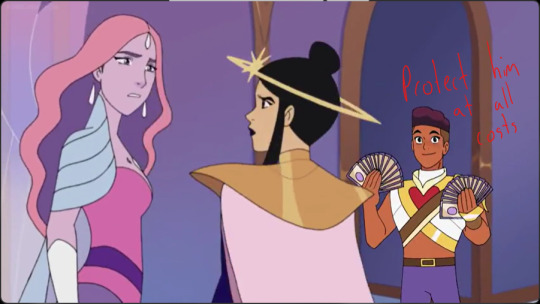
This is also the season in which ideologies get challenged most overtly. Starting with Glimmer and Bow.
Bow believes that good people do good things and bad people do bad things. Which is a neat sentiment and I kind of agree. The problem, is that he has associated "bad people" with "the horde", and has rationalised Adora as different because of She-Ra. To his credit, when he is confronted about this, he rethinks things. Bow is a simple character, and he needs to be to contrast with the rest of the cast.
Glimmer has that black and pink morality that I mentioned in my post on Rolling With It. She believes in a very distinct idea of good and evil that doesn't really match up with the rest of the series. She skirts the edge of being an anti-hero at times, which is a phenomenal choice for a story about war. Most obviously:

"Listen up, lady. After all your kidnapping and mind-wiping, I am just looking for a reason to serve up a little payback. So, if you do anything to hurt Adora..."
So, at this point, Glimmer thinks Shadow Weaver is working for the Horde, which would make her a prisoner of war. I'll let you decide what this means.
Adora believes in redemption, and this is where things get funky, because Adora has done the same thing as her friends. She has associated morality with allegiance, and this is a false positive, mostly.

I want to stress that the Horde destroys environments, levels settlements, and definitely kills civilians off camera, amongst other things. I am adamantly not trying to both-sides this conflict and I don't want any of that nonsense in the replies to my posts. What I am saying is that switching sides without changing behaviours doesn't immediately make someone a good person.
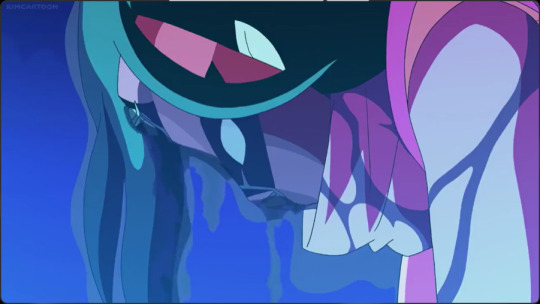
Shadow Weaver switches sides to the princess allegiance, but then routinely pressures the protagonists to corrupt themselves and actively get themselves killed. Shadow Weaver does not get redeemed, she gets a sea change.
It is also notable off hand that Adora thinks she has switched side, therefore her own redemption is finished and she has fully healed. But Shadow Weaver still moves her like a puppet on a string.

That is core to Adora's arc in this season and the series, the idea of personal agency vs the influence of others. Adora received a similar change in circumstances when she discovered she was She-Ra, so she thinks that Shadow Weaver will change as well.
What Adora is missing is the balance. Yes, her circumstances helped her, but she made a choice to be better. She was given the information about the Horde's evil, and made an informed decision to become a hero. Later on in the series, this will come up again with the Old Ones and their weapon, and again, Adora will make a decision to do what is right, not what her side thinks.
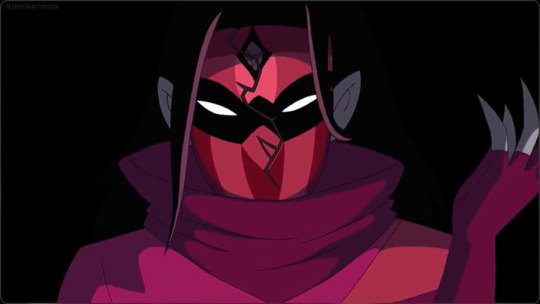
This is, however, more complicated, because the question of redemption is more complicated than a Tumblr post can properly address. I can try, but I recommend literally any philosopher ever to philosophise. So here goes my attempt.
Anyone can be redeemed, but "can" is the operative word there, not "will". Redemption is an informed choice to be better, and in my most humble of opinion, the truly evil people are the ones who refuse it. I think that She-Ra as a whole agrees with this premise.
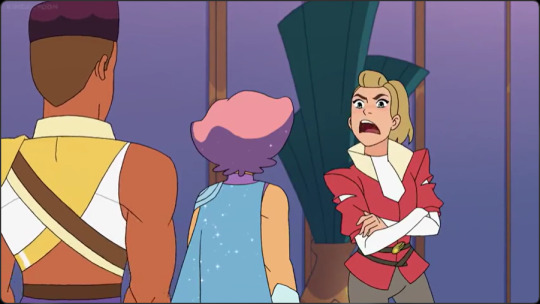
This episode sets up a ton of thematic ideas in direct opposition to each other, telegraphing to the audience that the season will go into these in detail, but also that the season will be about dissecting preconceptions.
Most notably, the third season of She-Ra will discuss Adora's idea of redemption becoming more nuanced, as Shadow Weaver actively disproves her premise, and she has to rethink things.
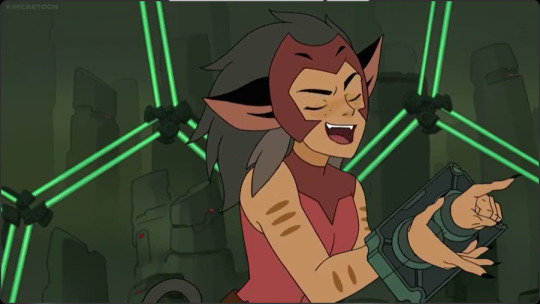
Which brings me to Catra, who is on the receiving end of all of these themes in quick succession throughout the season. For the moment, however, she is confronted with two. Connection, and preconception. Catra wakes up from a nightmare, in a cell. She believes that having friends will only cause her irreparable pain, and as a person who craves safety and emotional security, that isn't a risk worth taking.
Then Scorpia and Entrapta actively try to rescue her from death and succeed. It is imperative to understand that this catches Catra by surprise. She is used to that conditional acceptance that was Shadow Weaver's style, and has internalised Adora's departure to match those behaviours. Hordack hasn't helped.
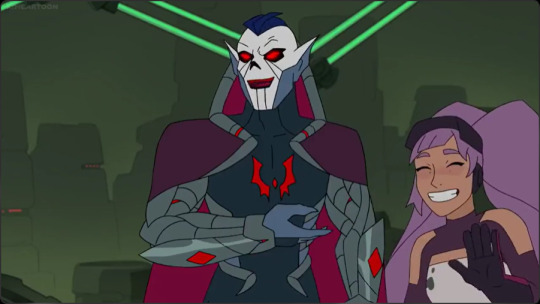
But here she is, at her lowest so far, and Scorpia and Entrapta stick their necks out for her, and it pays off. This is the power of friendship crystalised in its most pure and realistic form.
Season three centres around Catra almost achieving her own healing, and she does it on her own terms, accompanied by Scorpia, the embodiment of unconditional kindness. In essence, her spiral downwards has been reversed.

Redemption is weaved throughout Catra's entire journey, and while it isn't explicit in this episode, it is still an important element to bring up, because Catra is an explicit link to Shadow Weaver here, as well as Adora.
Shadow Weaver is given the chance for redemption, and intentionally refuses it. Catra is being given a similar opportunity to get away from the place that is directly causing her villainy, and improves, mostly.
It doesn't succeed, though, does it? Neither spiral completes. Catra almost heals, but comes crashing down, and Adora nearly succumbs to nihilism, but manages to claw her way out at the last moment. They try to break the mould and fail, but they rupture the neatness of this tragedy in the act, and if it can be torn, it can be broken.

FINAL THOUGHTS
Ok, here we go. Season three is my favourite season of She-Ra, so this is going to be a fun set of posts to make, because I have a lot of things to say.
This season fully eschews simplicity and revolves around having as many moving parts as possible. Everyone gets an arc, everyone gets a different thing that they are dealing with. Some stories don't even collide directly, but have massive impacts on each other.
This season shows that the story can be subverted while characters try and fail to do so. It's possible, but they can't do it without each other.
There's a storm coming, there's nuance in the air, and the winds are starting to change.
Next week, I will be looking at Huntara. The episode, not the person. I mean, kind of the person, but in an analytical sense. That got weird. Stick around for more analysis of this series if that interests you.
Previous - Next
#rants#literary analysis#literature analysis#character analysis#what's so special about...?#she ra and the princesses of power#spop#spop glimmer#spop adora#spop catra#spop bow#spop shadow weaver#spop angella#she ra#adora#catra#she ra catra#she ra adora#she ra bow#she ra glimmer#she ra angella#she ra shadow weaver#she ra princess of power#she ra spop#protect bow at all costs#the man walks up to a mage and tries a card trick that he isn't particularly good at. he is precious beyond all measure#theres also one shot in the entrapta hordack conversation where the lighting animation goes through the roof#but its just one shot and its onscreen for three seconds
24 notes
·
View notes
Text

Anthology Masterlist:
La Mechancete De La Vie.
Aka. The Villainy of Life.
Pairing: Morpheus x Life!Reader
Summary:
Death. She comes for all. Anytime, anywhere. You fear her. Fear her presence. But she doesn't decide when your time is up. It isn't up to her to decide when to come for you.
Life does that.
Not Death, not Destiny, not The Fates and not The Gods.
Life decides.
Until she doesn't. Until she crosses the line, she goes too far. So they trap her away. Hide her. Fearful of the day, she becomes free. Fearing the day, she comes for them. And end their lives. And who are they to stop her?
Warnings: TBA
I. The Consequences of Callousness.
II. Imprisonment.
III. The Gods.
IV. Strange Is The Passage Of Time.
V. Tensions.
VI. Life & Death.
VII. If I Were To Dream, I Would Dream Of You.
VIII. Revenge As Sweet As Her.
IX. The Start Of Something New.
X. A Friend In Hell.
XI. New Realm. New Rules.
Bonus:
A Lesson For Desire.
Life Talks To Death.
#dream#dream x reader#morpheus#dream of the endless#morpheus x reader#the sandman#morpheus x fem!reader#fanfic#masterlist#series masterlist#series anthology#anthology series#anthology masterlist#lord morpheus#morpheus lord of dreams#sandman#sandman netflix#the sandman netflix#the sandman x reader#the sandman x fem!reader#dream x fem!reader
122 notes
·
View notes
Note
A lot of people are really hostile to the idea of Theodore ever opposing the heroes (even temporarily), even though Before the Dawn dedicated a good portion of its plot to showcasing just how much power he holds and pointing out that literally the ONLY reason he's not a dictator is because he doesn't feel like it.
The only check on his political power is that he's willing to listen when Rumpole tells him something is a bad idea.
And that check is entirely dependent on Theodore himself.
What I'm saying is that the political situation in Vacuo is a powder keg waiting to blow, and Theodore himself has his thumb on the detonator.
yeah. the show has addressed the problems every kingdom has so far re: the power the headmasters hold—it's not there always front-and-center but it exists—so i'd be very surprised if they didn't do that in vacuo where the council is only nominal with no real power while doing so in vale, mistral, and atlas were the headmasters had one or two seats in the council.
it's one thing for theodore to come to his senses to realize that the crown is a threat that he should be worried about, but what he is really worried about—enough to mostly ignore the crown at first—is salem. so. what's going to happen when theodore learns that the Big One is there, with tyrian and mercury running around? is he going to concern himself with the refugees, or is he going to see them as a distraction from the real fight?
that is the crux of the matter; how is theodore going to react when faced with salem? lionheart was a brave huntsman and a friend of ozpin... then salem happened. ironwood may have teetered on the brink for a while, but ultimately he still listened... until cinder did her thing and salem arrived.
one other thing that also stands out in before the dawn is that theodore doesn't... really do any of that meticulous leader stuff; that's rumpole, with theodore being more of a charismatic and strong figurehead that everyone can rally behind. they're a duo, the brawn and the brains, and we saw what happened when rumpole was compromised—what's the opposite going to look like?
salem sent two assassins to vacuo. we are used to a headmaster dying at the end of the arc, but what if theodore dies early? is he going to leave a power vacuum behind? will vacuans see rumpole as someone worthy of following? will the crown seize control (remember, carmine is still at large and incredibly loyal to gillian)? would there be others attempting to vie for control, seeing the opportunity in front of them with theodore gone?
there are so many things they can do with theodore, and i am expecting him to act in antagonist manner at some point—it doesn't have to be a complete turn into villainy like ironwood, it could very well be a disagreement on how to deal with the refugees of atlas—considering that that has happened with the other headmasters as well, and the whole academy system and the power the headmasters hold has come under fire since cinder's speech in v3.
22 notes
·
View notes
Text
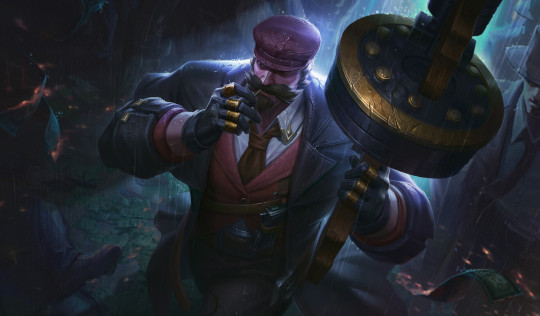

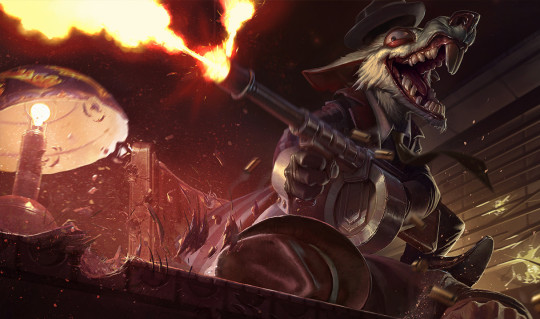
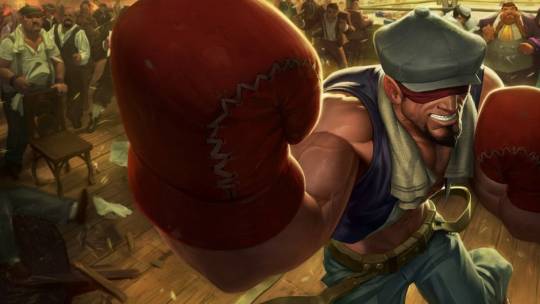

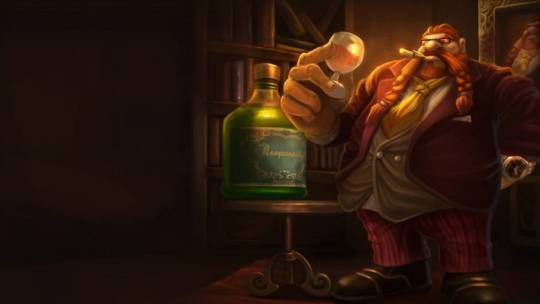


Mafia/Crime City Nightmares V 1
League of legends/Riot games
All credits to: Riot games,Kelly Aleshire,OldGun-K
Skins art appreciation.
´´Just your average bottomless pit of scum and villainy. Bosses vie for power; pacts are made and broken; friendships meet their end on the edge of twisted, subtle knives. And yet, there's something more to this city. Something undiscovered, imperceptible. Something... infinite.`Valoran City
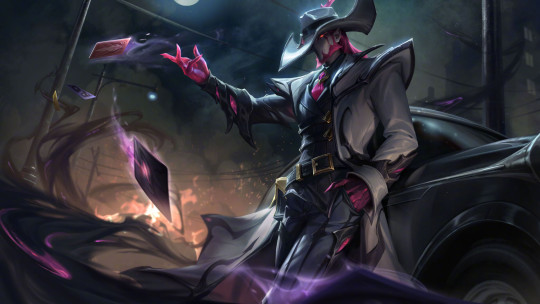
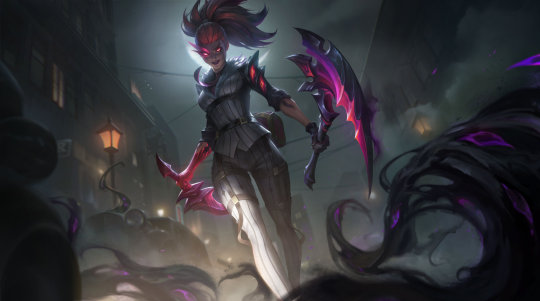



Mafia/Crime City Nightmares V 2
"You're telling me crime can be organized? Then what have I been doing!?"
´´Eldritch horrors lurk within the crime and grime of Valoran City. Black markets have given rise to Elixirs: a valuable substance of dubious origin whose production spells money and influence should any gang corner the market. Spurred on by agents of corruption, capos and cronies alike look to forces beyond the veil for a taste of true power.`` Valoran City




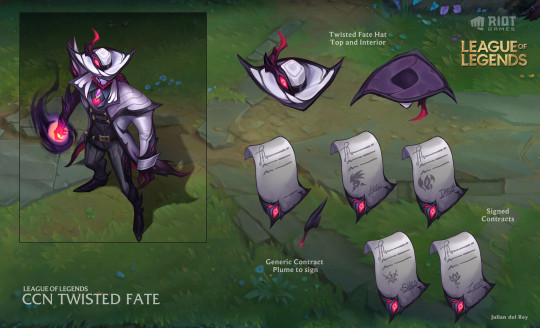



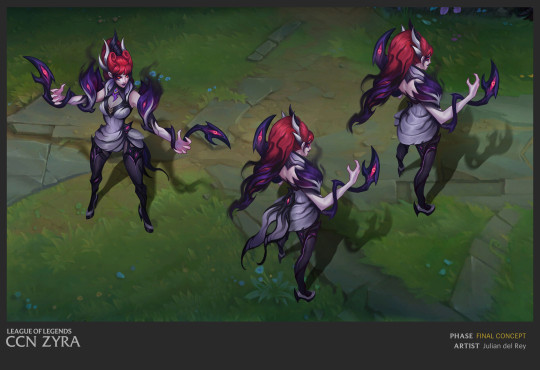
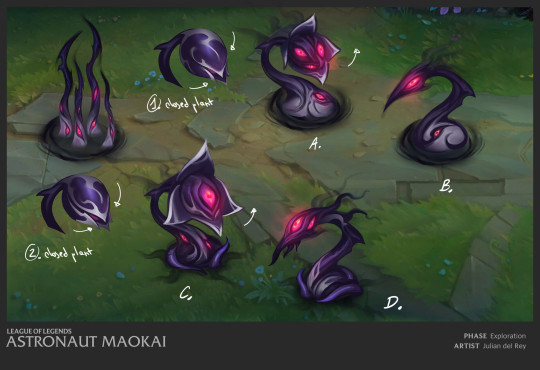

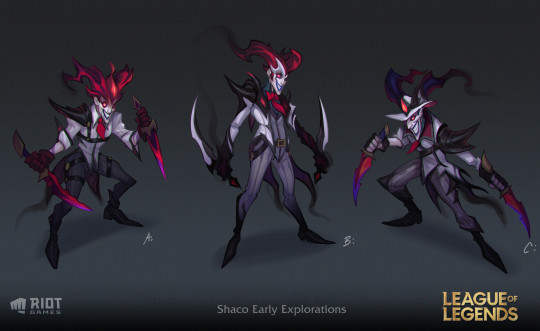

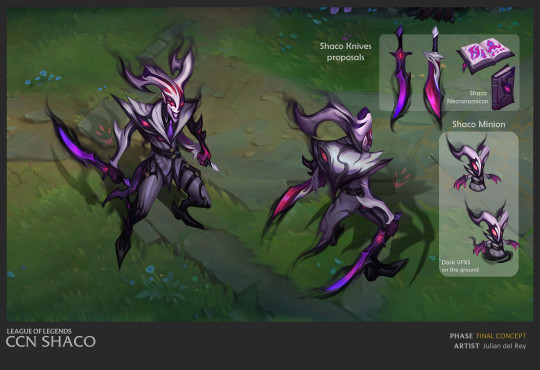


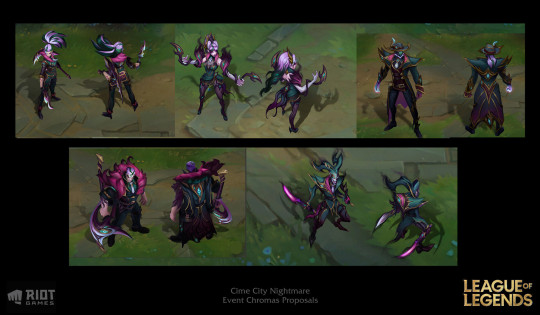
´´No one knows if the Mysterious Gentleman is human or something Else, but he has somehow injected himself into every crime family in Valoran City. With honeyed words and a conman's grin, he convinced them all to embrace the horrors of the Beyond... Now the only thing to do is sit back and watch them tear each other apart.``Twisted Fate.
#league of legends#character art#champion design#character design#riot games#shaco#darius#zyra#akali#twisted fate#miss fortune#jinx#graves#twitch#lee sin#gragas#braum
15 notes
·
View notes
Text
Abbé Proyart on the childhood on Robespierre
Source: La Vie et les crimes de Robespierre, surnommé Le Tyran: depuis sa naissance jusqu’à sa mort (1795) by Le Blond de Neuvéglise (abbé Proyart) page 19-51
Maximilien Robespierre was born in Arras in 1759, and was baptized in the Church of St. Aubert, his parish. His father was Maximilien Robespierre, a lawyer with little occupation at the Superior Council of Artois; and his mother Marie-Joseph Carreau, daughter of a beer brewer from the same town. He had a younger brother, who followed him in the career of crime and even to the scaffold. He had two sisters, one of whom died young. She who survived had had the advantage of a religious education from which she profited. But, as the mediocrity of her fortune kept her entirely dependent on her brother, she found herself obliged to go and live with him in Paris; and we don’t know what she might have become at the school of such a teacher. What would nevertheless appear to be in her favor is that her brother, at the time of his greatest fury against his Compatriots, chased her out of the house, and forced her to go and beg for an asylum in the town of Arras where she now lives.
The alleged genealogy that makes Robespierre related to Damiens, despite what all the newspapers of Europe have said about it, is absolutely false and confounded. Villainy is not always hereditary, and that of Robespierre may well do without ancestors. [1]
The father of Robespierre had the reputation, in the town of Arras, of a rather badly organized head, and above all to be very attached to his senses. Either from oddity of character or inconvenience of profession, on the run from a lost lawsuit, he abruptly left his country, where he left his wife and the four children of whom we have just spoken. We had ignored until now the route he had taken. We have just discovered that on leaving his homeland, he went to Belgium, where his family originated. He passed from there to Germany, and lived for some time in the town of Cologne, where, to survive, he opened a French school for children. Unsatisfied with his new profession, he left Cologne, announcing the intention of going to London and then to the Isles, where it was possible that he still lives: well done, in that case, if, by the silence of the differetion, he hides what would reflect upon him the shameful celebrity of his son. The Robespierre family, both on the paternal side and on the maternal side, had hitherto lived without reproaches. He was the first who dishonored it, and, unfortunately, not the last. But it is beyond our purpose to show how contagious his example was to his loved ones.
Robespierre, a few years after the disappearance of his father, lost his mother, and found himself orphaned at the age of nine. Not being heir to any patrimony, he had no resources for his subsistence except those which could be procured for him by the honest brawler Carreau, his grandfather, and the charity of good people, which were quite efficiently encouraged by two aunts of the same name, who lived in a great reputation for piety. One of them, with a mindset to secure bread for the children with which she saw herself charged, determined on one of those marriages which are called for reason, although often very unreasonable. She married an old doctor who, in addition to the present help he could provide to the Robespierres, also undertook to give the eldest an asylum in his house, when he would have completed his studies.
From his earliest childhood, Robespierre announced the gloomy and mechanical character that he carried throughout his life. He did not pass through the fine age of ingenuity. Concealed by instinct, before being able to so be by reflection, he always seemed to fear that someone would surprise him with the secret of thought and the way to get to know him was not by questioning him: one succeeded better by flattering him. He liked to be well dressed, and he sought to cast ridicule on children of his age who were better than him. Proud and disdainful with his equals, he was tyrannically harsh towards his brother and his sisters. As he spoke little, he found it bad that they spoke more than he did, he did not grant them common sense; nothing they said was well said. He missed no opportunity of mortifying or humiliating them; he lavished on them, for the smallest of subjects, the reproaches of rudeness.
In the state of poverty in which the young man found himself at the time of his first education, it was not to be presumed that he was to receive a very distinguished one. His aunts taught him to read; but he went without a Maître d’écriture, his aunts not having the means to give him one. So it was easy to see that he had never had one. He learned to write the way he could, by copying the first principles of the Latin language. As the College offered the resource of free Latin study, they hastened to send him to learn Latin in the College.
Soon pride, the only guide of his actions, kept him applied to study; and it didn’t take long to notice in him, if not the facility of genius, at least the patience of work joined with a great rigidity of character. The state to which he saw himself reduced filled his haughty soul with a painful feeling. The idea of his misery revolted him, and people were hastening to predict its sad consequences, lest he slow down the efforts he was making to escape it one day. Thus inconsiderate guardians are often the first to aid vicious inclinations in youth, the development of which will cause its ruin.
With application and ordinary dispositions, Robespierre distinguished himself among the scholars of his age. These first successes made his guardians conceive the hope of obtaining a scholarship, which would put him within reach of studying at the University of Paris. This prospect, new food for his budding ambition, made him make new efforts to attract upon himself the favor to which he aspired. On the recommendation of his protectors, namely a canon of the cathedral of Arras, he was provided with a scholarship to the College of St Vaast, one of the twenty-eight united with that of Louis-le-Grand since the suppression of the Jesuits.
It was in 1770 that Robespierre arrived in Paris. He was admitted as a scholarship holder at the College of Louis-le-Grand, for Classe de Cinquieme. It seems that his sinister inclinations had already manifested themselves in his country: at least they had not escaped a respectable mother who still lives, and who, having her son at Louis-le-Grand, wrote to one of the Masters of this house; ”I dare to hope, monsieur, that to all the kindnesses you already have for my son, you will be good enough to add that of supervising his societies a little, and above all of forbidding him any association with the young Robespierre who, let it be said between us, does not promise a good subject.”
However, the desire to distinguish himself among his fellow students followed him to the new theater which opened up to his ambition; and, although he had to fight first with competitors more formidable than those he had left in his province, he did so without being discouraged, and so obstinately that in less than two years he succeeded in shining among his peers in a Course in Truth which was not considered brilliant in the College, compared with those which had immediately preceded it. Having had only mediocre success in Rhetoric, in the compositions of the University, he did not hesitate, to avenge his humiliated pride, to start this class again; and as he had expected, application assured him, this second year, of the Palmes which genius had refused him the first.
During his course in Humanities, satisfied with this kind of superiority conquered by hard work, Robespierre aspired to no other, and feared nothing so much as losing it. Consistent in the false idea he had formed of what constitutes true merit, he referred everything to his studies, he neglected everything for his studies, his studies were his God. As for moral qualities, the finest ornament of youth, and the only precious fruit of a good education, he never seemed touched by them. In agreement with the philosophy of the day, even before knowing its principles, he feared, like the pitfall of talents, virtue, which alone has the right to stamp on them the seal of true greatness. Stubbornly occupied with the care of adorning his mind, he seemed unaware that he had a heart to regulate; and perhaps he was already depraved enough not to dare to hear its inclinations, or to despair of ever reforming them.
After having thus misunderstood or disdained the merit of virtue for himself, Robespierre ended up despising it and taking an aversion to it in others. Contemporary, in his College, of this amiable young man, so known throughout France under the name of the l’écolier vertueux, and of a large number of others who, with talents more marked than his, united the amenity of the character and all the charm of modest piety, Robespierre could not forgive them for enjoying among their fellow students a consideration from which he was excluded, and among the masters a confidence he did not share. A fervent and almost always unjust censor of their conduct, he found crimes in them in the slightest faults, and saw in them wrongs where no one would suspect them. Sometimes he took pleasure in ridiculing them with irony, sometimes in stinging them with causticity; and more often still, in mortifying them with disdain. The more one of his fellow students advanced in the career of virtue, the more Robespierre distanced himself from him.
A constant adorer of his thoughts, he always found them infinitely preferable to those of others. He spoke little, spoke only when people seemed willing to listen to him and always in a decisive and confident tone. Although greedy and insatiable for praise, when it was given to him, he received it with an air of cold modesty, which seemed to say: I still feel myself above your praise. If, in class, he was appointed to the first place, he went to sit there without haste, and as if in the only place which suited his talents. If he had the chagrin of seeing a number of his fellow students pass before him, he greeted them with a mocking laugh, which betrayed all the impatience of wounded pride; and he was not satisfied that he had not found an opportunity to avenge himself by some wicked dart, sometimes against those who had obtained the preference, sometimes against the judge who had bestowed it.
With these dispositions and this malignity of character, Robespierre made himself feared by his fellow students, and was loved by none. But, infatuated with his own excellence, he thought he had been harmed by the affection which his comrades denied him, by loving himself madly. Very often, during the private recreations which were taken in the study halls, he was left alone, and he had the constancy to spend entire hours alone. He thought he was compromising himself by taking a step to approach a fellow student; and, in the abandonment in which he then found himself, he liked to be self-sufficient and to find everything in the enjoyment of his thoughts.
In his lower classes, and however young he had been, he was very rarely seen sharing the amusements and games which most please childhood. His cold and misanthropic heart never knew those outpourings of lively and frank joy, natural signs of candor and ingenuity. Of all the noisy and endlessly varied amusements which make the public recreation of a college such an animated scene, none pleased him, and he preferred dark reveries and solitary walks. If someone, at these moments, approached him, he received him with a cold gravity; and answered him at first only in monofyllables. If he took it upon himself to praise his style and his scholastic productions, Robespierre did him the favor of striking up a conversation with him. But, however little one ventured to thwart him, one instantly became the object of some harsh and virulent trait. Camille Desmoulins, who lived at the same College and whose impetuous and muddled character did not go along well with Robespierre's philosophical arrogance, had from time to time grapples (des prises) with him; but, from then as since, the champions did not fight with equal strength. Always more thoughtful than the adversary who provoked him, and more master of his blows, Robespierre, spying on the moment, swooped down on him with all the advantage that cold Prudence has over Temerity.
This dominating inclination, and the fund of selfishness which formed his character, made him hostile to all kinds of constraint; and it is easy to imagine how the order established in his college looked in his eyes: he detested it. The wide variety of exercises he prescribed was for him only an unbearable yoke. He yielded to them, however, less because he feared the humiliation of reproaches even more than the embarrassment of subjection. Prudent and circumspect, he carefully avoided anything that could compromise him. It was in silence that he gnawed at the curb imposed on him by the Rule; or if he allowed himself to recount his troubles and to sigh his complaints, it was only aside, and in his secret confidences with certain subjects whose discretion he thought he could trust. It was for these people alone that the college was nothing but a prison, the students unhappy captives, and the masters despots, oppressors of the freedom of youth.
But, of all the exercises which are practiced in a House of Education, there was none which cost more to Robespierre, and which seemed to annoy him more than those which had religion more directly as their object. His aunts, with great piety, had not succeeded in inspiring him with a taste for it in childhood; he did not approach it at a more advanced age: on the contrary, the prayer, the religious instructions, the divine offices, the attendance of sacrament of penance, all that was odious to him; and the manner in which he discharged these duties reveals only too well the opposition of his heart to them. Obliged to appear at these various exercises, he bore to them the passive attitude of the Automaton. He had to have the hours in his hand; he had them, but did not turn the pages. His comrades prayed, he did not move his lips; his comrades sang, he remained silent; and, even in the midst of the Holy Mysteries, and at the foot of the altar charged with the feigned Victim, where the Surveillance contained his exterior, it was easy to perceive that his affections and his thoughts were far removed from the God who offers himself to his adoration.
The retreats above all, which are given to the youth of the College of Louis-le-Grand, at the beginning of each scholastic year, bored Robespierre cruelly. He could not suppress his aversion to these religious exercises. What good is this loss, he said to his fellow students? Couldn't we make better use of the time? He applauded himself, as with a stroke of wisdom, whenever, deceiving the vigilance of his Masters, he had succeeded in substituting the reading of some profane author for the pious readings which were prescribed or advised to him. As long as the retreat lasted, you saw him look embarrassed, bored, sometimes annoyed. It would have been difficult, in fact, for the great Truths of which he was instructed, and on which he was then obliged to fix himself in spite of himself, not to have agitated his soul with some importunate disturbances.
The necessity of going to confession every month tired Robespierre more than anything else; but the rule was expressed, and it would have been impossible for him to escape it with impunity; he got into it. The Ecclesiastics attached to the College of Louis-le-Grand were in the habit of confessing the young men who wanted to address themselves to them, leaving full freedom to others, to give their confidence to Confessors from outside, Chosen Subjects, whom pure zeal induced to devote part of their time to the important work of youth leadership. Robespierre tried some ideas, tried others. He even had the precious advantage of having during a time for Confessor M. l'Abbé Asseline, now Bishop of Boulogne. This Prelate, known for his zeal and his enlightenment, is, as Director of consciences, one of those men from whom a sinner can only escape by defying much remorse. It was not uncommon to see his young Penitents wipe their tears when leaving his confessional. But what was seldom noticed in the others, seemed sufficiently extraordinary to be noticed in the person of Robespierre. Some of his condiciples, one day, found him bursting into tears at the moment he left the Sacred Tribunal, and hastened to make known in the House that Robespierre was converted. Experience, which causes Impenitence to also have its tears and its sighs, in the Antiochus, waited, in order to pronounce, the less equivocal fruits of conversion; and these fruits did not appear.
In all well-regulated houses of education, frequentation of the Sacrament of Penance is prescribed, as one of the most efficacious means of purifying the morals of youth and of forming it in virtue; but it is not the same with regards to Communion. Its frequent use, fruit of the dispositions of the soul, can only be an object of exhortation and advice. Robespierre lived at the College of Louis-le-Grand at a time when Piety reigned there in all fervor. The general practice was that scholars should take communion once a month: a large number did so more often; and the virtuous Decalogne was not the only one who communicated at least every week. On the great Feasts of the Year, the number of Communians was such that Mass lasted half an hour longer. My eyes have seen this touching spectacle of a pious Youth rising in Mass, so to speak, to surround the Holy Table. Robespierre, in these 'Solemnities', would have been ashamed to get noticed by not associating himself with his condiciples; and he made arrangements, God forbid, to communicate like them. One even remembers a time when Communions were fairly frequent; which, added to his ardor for work, gave him a certain air of regularity among the fellow students. But the Masters, who had under their eyes the whole of his conduct, were more frightened than edified whenever they saw him participate in the Holy Mysteries. Which would again announce that it was hypocrisy and the intention of securing a reputation, much more than religion, that led Robespierre into this Christrian act. It was at the time of a revolution in the College of Louis-le-Grand, which deprived it of almost all its Masters, and at a time when it was no longer shameful to be absent from Table Saint, where Robespierre not only no longer approached it during regular days, he went so far as to defy the anathema of the Church and abjure the Easter Communion. He did not attend a single one the whole time of his stay in the College; more impious perhaps still, by open contempt for a sacred duty, than by profanation itself.
At the time when it is best to surround oneself with certain appearances of regularity, he had so little confidence in his Masters that, in the frequent visits which they made, to ward off from their College the contagion of bad books, few subjects were more scrupulously sought than him on this point. Robespierre, on these occasions, was always greatly piqued by the suspicions which seemed to be fixed upon him; he complained bitterly of it, crying about injustice and prejudice. The truth was, however, and some of his comrades were not unaware of it, that he was a possessor of bad books that were robbed of him. But, always prudent and circumspect, he deposited them in a neutral place, and went to read them, in the place of the House where one believes oneself sure of finding oneself without witnesses. One day, however, a prefect, suddenly opening a door, finds him on the commode reading a very bad pamphlet. Caught thus in flagrante delicto, Robespierre thought himself lost; and, forgetting his natural pride, he falls at the feet of the Arbiter of his fate; he comes down to the humblest supplications. The Master with whom he had to deal was neither inflexible nor fervent in his Morale. He was a man who had been heard more than once to exclaim among the Young People: "Long live liberty, my friends: far from us the hypocrisy.” It was the Abbé Audrein, who since deserved, by his apostasy, to become the Collegue of Robespierre in the Assembly of Factious, where he still sits. With such a judge, the affair of the bad book was civilized without difficulty, and did not even come to the knowledge of the other Masters of the House.
How guilty they are, let us be permitted this reflection, how guilty they are, and with what account they take upon themselves towards Heaven and Society, these weak and cruelly indulgent Masters, who fear to sacrifice what they call the fortune of a subject, by his expulsion from a college, and do not fear to sacrifice all the youth of that college to the scandals of a corruptor, and to raise again, in his person, a Plague for his Fellow citizens! If Robespierre had been expelled from Louis-le-Grand the day when it was proved that he deserved to be so; [1] then, without resources as he was, to continue his studies, he would have been forced to find an occupation, and then how many fewer crimes in France! How many innocent victims rescued from death! If they had done him justice by expelling him from the College, it is probable that by sparing him the crimes of a public life, he would also have been spared the shame of the scaffold. Is it not even possible that, in this order of things, the assault on the King would not have taken place, since it was he, as we shall see later, who first proposed it, who solicited with the most fury and determined it by a sophism?
Like all justly suspect young people, Robespierre, in his College, was horrified of surveillance, and always seemed to fear that the secret of his bad conscience would be stolen from him. The presence of his Masters fatigued him: he fled from it, and never breathed more at ease than at a greater distance from their gaze. It was not necessary for a Master to reprove or humiliate him, it was enough that he was his Master for him to hate him; so that it was rather authority he detested than he who had the power to exercise it over him. “The first care of the Young People, when they are given a new Master, is to seek to know him, and, for that, to hasten around him, to make him speak and to study him. Robespierre on these occasions, walked with disdainful indifference far from his comrades, and seemed to say to the newcomer: "I do not know you; but you must be my Master; and, for that alone, you are odious to me.”
It was not yet enough for him to live by this dreadful morality, he neglected nothing to propagate it; and he sometimes rose up with a sort of indignation against those whom he saw unwilling to share in its injustice and baseness. He called vile adulators those of his faithful disciples whose honest and grateful feelings condemned his misfortune. He made a crime of the attentions and respects of which a well-born young man never dispensed towards his Masters. If any of them, from the desire to learn, or from any other laudable motive, made themselves more alliduous with the Master during the recreations, Robespierre took an aversion to him, and left no opportunity to mortify him go to waste, and thought he had exercised a very noble revenge when he had said to him: ”Go and flirt with the Master.”
His aversion to authority was such that it did not spare even those of his superiors to whom he was indebted for particular benefits. M. l'Abbé Proyart, then sub-principal of the College of Louis-le-Grand, was one of this number, and he will not disavow what we are about to report on this subject. Robespierre had been recommended to him by a Vicar-General of his docese. Himself witness then, to the extreme misery of the young man, who, sometimes, speaking to the eyes, and producing himself by a strong bareness (il se produisait par une forte de nudité), M. Abbé Proyart asked for help for him from M. the Bishop of Arras; and the prelate did not make them solicit. One day only he observed, that he had often heard his diocesan spoken of as a studious subject, but never as a virtuous subject: to which the Patron of the poor Schoolboy replied: that, without doubt, the constant benefits of Religion would finally instill in the Young Man a taste for Religion, which, unfortunately, was still left to be desired. The Charity does not dispute with the misery: the Bishop of Arras continued his assistance to Robespierre. We will report on this subject a rather curious piece. It is a letter from Robespierre to M. l'Abbé Proyart, then retired from the College of Louis-le-Grand, and living in the City of St. Denys.
Paris, April 11 1778
Monsieur,
I hear that the Bishop of Arras is in Paris, and I would very much like to see him; but I have no tailcoat, and I lack several things, without which I cannot go out. I hope you will take the trouble to come and explain my situation to him yourself, in order to obtain from him what I need to appear in his presence.
I am with respect, Monsieur, your very humble and very obedient servant.
De Robespierre the older
Notwithstanding the obligations that Robespierre owed to him who thus protected him from his poverty, he never showed him more attachment and gratitude. Like that voracious animal which follows you when hungry, and takes from you the bone which you have given it, he approached his Benefactor when in need, and fled him as soon as he received the help. When M. l'Abbé Proyart appeared in Arras at the time of the holidays, Robespierre, the one of all the young people of this town raised at Louis-le-Grand who owed him more than what every disciple owes to his masters, was the only one who neglected him, and only saw him by chance. One would have said that to render him services was only to pay him a debt. No one was more careful to dispense with gratitude. While he was in Arras, a Canon of that town, M. l'Abbé Aymé, gave him his table out of charity: he would have liked to persuade his comrades that he only accepted it out of kindness. The memory of a benefit, like the presence of a Benefactor, tortured his pride.
This passion, the sole motive of his conduct, pervaded him in everything. Albeit scholar in the College; albeit reduced to the poverty in which we see him, he would have aspired to appear as well as the most well-off boarders. Most of the scholars do without a wigmaker; Robespierre goes to the expense of paying for one; and it was not rare to see him, with an elegant curl, a coat and perforated shoes. It was not enough for him to take on the tone of wealth, when he lived on charity, he still wanted to mimic the Nobility in the midst of the witnesses of his commonness, and he had his name preceded by a de, which all his young compatriots ridiculed. There is a pride which does not exclude the outward appearance of politeness, which sometimes even affects it; that of Robespierre made it coarse, to the point that, when he spoke of his Superiors, of the Men in place and of the Great, he only called them by their name, without preceding it with the usual title of Monsieur, which French politeness refuses no one. It is in this tone of irreverence that we see that in imploring the benefits of the Bishop of Arras, he calls this Prelate, quite simply, the Bishop, in the same letter where he foolishly calls himself de Robespierre.
What nurtures a mad pride in so many young heads, and what perhaps ended up making this vice incurable in Robespierre, is this perfidious facility that Youth finds in making their Masters excuse their coldness for virtue, not their successes in the sciences. Whoever has tasted the pleasure of being praised for the qualities of the mind, will rarely deserve to be praised for the qualities of the heart, and even more rarely for the virtues of the soul. Robespierre’s professors, who only saw him during his Classes, and when he had to offer them more proofs of his application to study than of the baseness of his feelings and the darkness of his character, flattered him without reserve, and as if a young man had fulfilled all his duties once he knew how to spread words and compose sentences. But none of his Masters contributed so much to develop the republican virus which was already fermenting in his soul as his rhetorics pofessor. An enthusiastic admirer of the Heroes of Ancient Rome, M. Hérivaux [2], who the students jokingly nicknamed the Roman, also found in the character of Robespierre a strong Roman physiognomy. He praised him, cajoled him unceasingly, sometimes even congratulated him very seriously on this precious similarity. Robespierre, no less seriously, favored compliments, and was grateful to bear the soul of a Roman, be it the atrocious soul of a parricidal Brutus, or that of a conspiratorial Catiline.
This particular affection of the Master disposed the Disciple wonderfully to profit longer from his lessons, and to do two years of Rhétorique under him. It was at during this period that Robespierre obtained a well-signalled favour, in a memorable circumstance, a favor of which he was doubtless the most unworthy subject, and which lends itself to very striking comparisons. In 1775, Louis XVI, after the coronation ceremony, made his formal entry into Paris, accompanied by the Queen and the Royal Family. Their Majesties, on their way from the Metropolitan Church to that of Ste. Génevieve, stopped in front of the College of Louis-le-Grand, where they were complimented by the University staff. This College, which survived only on the benefactions of our Kings, also owed a special homage of gratitude to Louis XVI; and it was Robespierre who was commissioned to present it to him in the name of his fellow students, in a speech in verse composed by his Professor. I was present for the event, and remember that the King deigned to cast a look of kindness on the young monster who, brought up in his House, was one day to take the first stab at him.
Robespierre, after having distinguished himself during the second year of Rhétorique, did not shine in Philosophy. This new kind of study greatly disgusted him at first, and he gladly gave it up. But, as the habit of work had made him in need of it, and as he was moreover jealous of preserving his reputation as a good student, he was triumphant over his repugnances, and ordered himself the measure of application necessary to protect oneself from reproach. But, to the study of his cayers, he joined the reading of Modern Philosophers; and soon the brilliant Sophisms of those Eternal Flatterers of human pallions appeared to him more conclusive than the arguments of Morality, which confounded his pride. It was this reading of impious Books, begun during his Philosophy, and continued during his course in law, which completed the extinguishing in his heart of all honest sentiment, and consummated the work of his depravity. And, what we know positively of Robespierre, do we not have the right to conclude from his Accomplices? It is necessary to want to be blind for pleasure, or to not know neither how to read or observe, in order not to admit that it was in this same oven of bad books that the Factious of the day, people for the most part without means of their own, drew all that they needed to determine the French Revolution or to prolong it. Also the principles of our former Ministers on the circulation of all the bad Books, without excepting even those which strike the most direct blows at the Altar and at the Throne, constitute a veritable enigma, or rather a mystery of blindness, which finds its solution only in the designs of an avenging Providence, which willed that great excesses should be punished by still greater excesses, and that Authority, accomplice in all the crimes of the Press, would itself become its Territory, in order to teach once and for all all the inattentive Kings, that the first of their duties, likewise their greatest interest, is to oppose the perversion of their People.
Always guided by selfishness and ambition, Robespierre, during his law course, a study which in Paris was only an abusive and financial formality, preferred to cultivate the eloquence of the Bar which leads to celebrity, rather than deepen the science which makes the Man of Law truly useful to society. He read the Curious Memoirs; he followed the famous Causes, he ran to the Palace, to hear the Pleadings of apparatus o the same, and pass judgment on the most famous Lawyers.
[1] It was the cruel inclinations of Robespierre, and his Motions of blood, in the Constituent Assembly and in the Jacobin Club, which made people imagine a relation between him and Robert Damiens; and it was to make it more probable, by an affinity of name with this Regicide, that right-wing Journalists, subsequently copied by those on the left-wing, called him, instead of Robespierre, Robert-spierre.
[2] By a provision very favorable to disorder, although authorized by the Parliament of Paris, the Principal of the College of Louis-le-Grand did not have the right to dismiss a Scholar without putting him on trial, and, this trial done, the schoolboy who had lost it could appeal, and lead his Superior from Tribunal to the Parliament. Whence it followed that the Robespierres, the Camille-Demoulins and other subjects of this stamp became, with the prudence of the Serpent, irremovable pelts in this House.
[3] M. Hérivaux, whom we knew well, is one of the victims of the French Revolution, in the moral order, whom we most regret. He was a man of noble and considerate countenance, very erudite and expressing himself with grace and dignity, sometimes perhaps in a tone a little too magisterial. His principles of Common Moral Politics were so pure that Abbé Royou had associated him for a time with literary works, the University was then divided into two Classes of Masters; and M. Herivaux was considered to belong to ”the good people”. Although he was only lascivious, he had been seen to practice the Christian Virtues in an exemplary manner until the time of the Revolution. Then the republican ideas turned his head upside down to the point where his friends no longer recognized him, and his own children were obliged to flee before his demagogic mania. Abandoned of what he once held most dear, he consoled himself in the hope that his disciple Robespierre would incessantly cause the days of ancient Rome to be reborn in France, and above all that that precious system of equality, who the just would be fully proud of the reproach made to him by the proud delicacy of our morals, for having, after the death of his wife, married another woman, virtuous indeed, but his servant-maid.
#robespierre#maximilien robespierre#abbé proyart#frev#desmoulins#i’m having a hard time choosing between this and robespierre’s ”danton said virtue was having sex with his wife so he must be a conspirator”#as most contrived way to denounce a person#ever#you know a kid is future satan when he keeps quiet and focuses on his studies…
38 notes
·
View notes
Note
how does Kronos get along with the rest of the rogues? (personally I always imagine the iceberg lounge as like... a micky's house of mouse situation visa vi villians, so I just kinda assume they all know eachother tangentially)
I've always liked the idea that they all at least have heard of each other! If not all at least had that one time where they were forced to work with someone for a mutual goal they otherwise wouldn't have. This is the start to most of Kronos' interactions with other rogues.
Iceberg Lounge is exactly how MOST of them met faer. Riddler got a taste of the tech when Kronos was still Zacharie--still civilian. I'm messing with the timeline of events a little, but all that matters is that there was a space of time between working with Riddler, and being kidnapped by Crane.
Oswald first, because I'm debating rewatching Gotham again. So, I have Penguin on the brain. They've worked together a few times, though fae doesn't trust him with the gadgets himself. (He would've loved to steal one, but he has no goddamn idea how to work them anyway...) As alluded to here, one of those times included Kronos jumping in to bail him out of trouble. They have a very mafia view of each other, if that makes sense... It's a relationship sustained mostly on debts one accrues to the other. There'd probably be something friendlier there if it weren't for all those years fae spent kidnapped...
Speaking of which: Joker. Fae and him have a very tense relationship. He was the other one who tried to kidnap faer pretty immediately after the source of Riddler's new gadgets got leaked... A bad start, according to a still civilian Zacharie... Though the attempt was thwarted by Crane, that was it's own set of bad omens and tragedies. These days, Kronos finds faerself wondering more and more how things would've gone if Joker had succeeded instead. Not great, fae imagined, but being worked to death like someone in a sweatshop seems preferable to the hell Crane showed faer. They had their own "fine, we work together" moment--much more tense on Kronos' end than Joker's. For the most part, Kronos avoids him like the creepy uncle at a family reunion, despite the faux friendly act Joker pulls with his favorite broken clock...
Zsasz and faer are oddly friendly all things considered. Kronos always wanted to ask him to teach faer how to shoot, but it's never felt right. He probably would, at least. Probably. Their meetings are more sparse and less professional, only crossing paths incidentally. He's never had a reason to kill faer, and Kronos has been very careful to not give him one. The one time things came close to Kronos interfering with a job, fae escaped with a bomb that slowed time, and an apology letter. He at least hasn't tried to turn faer to mincemeat yet, so Kronos assumes the apology and the prompt leaving of his target well and good in a spot to be killed bought faers life on that one. No matter how casual he is with faer, Kronos always reacts like a dog who's been hit before. Maybe it's for the best.
Two Face and faer used to talk. He was the closest thing to a link to Bruce that Zacharie ever had. Back when he was only one Harvey (mind the spelling!) After everything went wrong in Two Face's life, Zacharie was already a borderline hikikomori. How things changed for the both of them... When they met up again, they were both well and set into their personas. Kronos was younger before anyway, and they collectively viewed faer a bit like a punk kid trying to muscle into where fae didn't belong. To Vey, it's largely a "you aren't cut out for this" kind of thing (whereas Vie just doesn't like the idea of another guy trying to claim turf and such.) It didn't help that post-Crane, most of faers villainy was supported by Strange. They see faer kind of like the rich kid who got an early start on things via a loan from daddy, though Kronos really wants to reconnect with an old friend. C'est la vie.
The last one I can say has any real thought behind it thus far is Jervis Tetch. Hatter and faer are incredibly friendly, all things considered. Not even just like Zsasz, where fae is very convinced one day fae'll be the name on that hitlist! They just get along! It helps that a brunet with a goatee doesn't really fit the profile of his Alice(s) though. Fae also is smarter than to drink the tea he offers, though fae's been coerced before. They largely work together on much smaller projects--none of the giant heists other rogues contact faer about. The applications of each others research to (well) each other are fascinating to them both! Seemingly endless nights were spent pouring over each others notes, tinkering away at something they both saw as grander than it would've been otherwise... Though they worked together less and less as Kronos came into faers own, and perhaps a certain Hatter harbors some resentment over that. Perhaps fae should watch the drinks fae buys at the lounge very fucking carefully.
1 note
·
View note
Text
Guys I don’t have polls but can we save Tumblr Villainy Vie and Tumblr 2k ADHD Battle for me please thank you
0 notes
Text

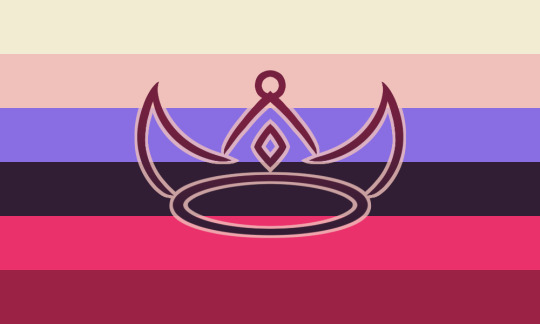


Di/Devi pronoun flag 👑
[Full set: Di/Devi/Devis/Deviself]
[Pronounciation: die, deh-vie, deh-viez]
[Meant to be capitalized, but not always necessary]
[Derived from "divine"]
[Symbol is a mix of a halo, horns, and crown]
Im also fine with this flag and symbol being used to represent other stuff if theyre egotism, divine, royalty, villainy, or other such related things too (like royalty pronouns, villaincore, divinekin, etc). If its being used for other things however, please link to here so the source/original use can be known! And obviously, dont take credit- 🔪
#di/devi#pronouns#neopronouns#term coining#pronoun coining#pronoun flags#divinekin#demonkin#angelkin#godkin#devilkin#villainkin#egotism#egotistic#divinecore#demoncore#angelcore#godcore#devilcore#villaincore#royaltykin#royaltycore#egoposting#mogai#queer
108 notes
·
View notes
Text
My Manhwa List (2020) Part 6
sHi! How arth thou? I’m back to give you another list of recommendation!
Beware of the Villainess

Description:
Sit back and take in this romantic tale of an angelic heroine and her devoted suitors as they vie for the depths of her love... or not. This story’s about to go through some edits! After an accident, a modern-day college student awakens as the story’s villainess, Melissa Foddebrat. She’s far from anyone’s favorite, but she IS the daughter of the duke. Determined to live it up, this new Melissa is doing things her way — antiquated society, be damned! All idiots, prepare to step aside or perish!
WHY YOU SHOULD READ:
- plot = 4.5/5
- art = 4.5/5
- C O M E D I C G O L D
- their meme-able face are so funny lmao
- ml is so cute & soft & deserves everything in the world
- mc is such a bad-ass like?? she’s so cool & she doesnt deserve to be treated less by that stupid prince ok
- she is beauty, she is grace, she is the queen!
- all i do is fangirl over the mc basically
- isekai
- i love her dynamic with her bro cause honestly same that’s how my sibs and are act sometimes lmao
- her maid is so cool
- a bad-ass with a heart
- ml has this past and secret and i’m living for it
- a gem basically
- overall verdict, a highly recommended manhwa that will make you all sort of emotions. one of the best manhwas released this 2020 ok i said what i said
I Became the Villain's Mother

Description:
Summoned into her favorite novel as the infamous Duchess Roselia Chade, Haena is bathed in riches, power, and a family of her own. Life couldn’t be better, save for the small detail that her beloved stepson, Einspanner Chade, is also the evil mastermind destined to kill her. At this point in the story Ein is still just an adorable child yet to reach his cruel awakening, and so Roselia is determined to stop him from becoming a ruthless killer. But with the duke getting in her way and trying to poison his own son, safely raising a child that was primed for villainy may prove harder than she originally thought. The survival of both mother and child depends on whether Roselia can successfully rewrite their tragic ending!
WHY YOU SHOULD READ:
- plot = 5/5 ok i’m loving it already despite the few chaps released
- art = 3/5
- IM LOVING THE TWIST
- this is an all out war between father & son ok
- ain is so cute like??
- i s e k a i
- ain is such a bad ass cute little devil
- i know i know i’m collecting so many isekai-ish manhwas bcoz why not
- i love the mc so much shes so adorable and her previous job is awesome (i know you dont care but i wanted to be a daycare teacher too when i was a kid so yay)
- she’s such an awesome mom like??
- the dad... the dad is idk but he’s a terrible dad for me (right now)
- ^ why is this like a discouragement comment like idek what i’m thinking yet i’m not gonna delete it
- i love that this is mostly a son-mom manhwa bcoz it’s such a breath of fresh air and not to mention almost all dad-daughters manhwa are hurting me
- i’m here for the mom and son interactions basically
- overall verdict, a highly recommended manhwas for our souls!
Marked By King Bs

Description:
High school is hard enough without a target on your back, but that’s exactly the situation Annie finds herself in when she crosses a group of the most popular kids in school. Marked by the king bee himself, the notorious Ashton Griffin, Annie becomes his newest fixation--and he is determined to make her life miserable. Now at his beck and call, Annie must stay on Ashton’s good side to maintain her peaceful life and avoid becoming a social pariah. As she navigates her way through alienating social cliques, persistent old crushes, and the hot upstairs neighbor who never puts a shirt on, Annie will soon learn that there’s more to being popular than meets the eye. She just wanted to live a normal life, but maybe there’s no escaping these king bees. An official comic adaptation based on the hit dating-sim game.
I AM TARGETED BY THEM!!!
WHY YOU SHOULD READ:
- plot = 3/5
- ngl but i can already feel the slight cliche-ness of this story and yet i’m still here forgive me this is a guilty pleasure manhwa
- art = 4/5
- i love the mc (yes, that quickly)
- dark haired boyo is mine ok??
- kinda funny
- i miss the school life setting so hihihi
- verdict, a cute and good read!
Pixel of Life

Description:
After finding out her boyfriend has been cheating with her boss, Hana loses her menial desk job of 5 years. Countless rejections later, she finally lands an interview at a small art gallery. Hana jumps at the chance to leave the drama of the past few months behind. But her high school friend (and worst enemy) Jiyeon is the gallery owner? Their most peculiar romance is about to begin… or not?!
WHY YOU SHOULD READ:
- o m g
- plot =4/5 this deserves more read tbh
- art = 4/5
- i’m starting to relate to mc since i started working cause #adultingsucks
- one of my dream jobs huhuhu
- i so love the twist
- the s i b l i n g s
- i wanna know what happens next!!!
- s u s p e n s e
- mix with mystery and spinkle with secrets and viola i present to you: the pixel of life
- verdict, a super good read!
The Antagonist’s Pet

Description:
Blessed with the face of an angel, young Sasha Tartt knows a life-altering secret: in this romance novel where she’s just a side character, she’s the only one who knows the true ending! When the antagonist of the story takes a particular liking to her, she must make a decision: help the clever and beautiful Rebecca find a happy ending, or side with the sweet-natured protagonist to ensure her own survival? On top of that, Sasha has to juggle the affections of her bespectacled love interest and tame a dragon boy! Can Sasha learn new tricks to win the hearts of these main characters? Based on the hit novel.
WHY YOU SHOULD READ:
- plot = 4/5 so few chaps yet so good
- art = 3/5
- i so love that she acts dumb when she’s not cause i love scheming characters
- W O M E N E M P O W E R M E N T
- who run the world? girls!
- i love that she loves the villain cause girl same
- idec whether there’s an ml or not cause we stay for their future bond
- she is beauty, she is grace, she’s the villainess pet
- ^ it sounds better in my head
- verdict, a refreshing manhwa that will leave you wanting for moreee!
#The Pet of The Villainess#beware of the villainess#pixel of life#i become the villain's mother#when you're been targetted by the bully#manhwa#manhwa recommendation#marked by king bs#The Antagonist’s Pet#reynlist#reyn.manhwarecs
591 notes
·
View notes
Text
I have seen the future
2021, Trump will pardon several of the capitol terrorists and then himself. Republicans will hem and haw over whether or not to denounce this; they’ll say that they wouldn’t personally have done it, but they’ll support Trump’s legal right as president to pardon whoever he wants for whatever reason he wants. The self-pardon will go to the Supreme Court, which will decide 5-4 in his favor but will also somehow find a way to carve out future presidents from their ruling so that Biden can’t do the same thing himself. Melania will finally divorce Trump, and he’ll quickly proposes to and marry some 20-something blonde Republican starlet as a publicity stunt. It will be hyped up like a British royal wedding, the biggest tabloid story of the year, all in an effort to hide the fact that he could face legal consequences for the first time in his life. If by some miracle the court didn’t let the self-pardon stand, then Attorney General Merrick Garland will recuse himself from a bipartisan special counsel investigation into Trump’s 2015-2021 crimes, which will find plenty of evidence against him but won’t follow through on any of it because Biden will want the nation to heal and move forward and forgive and forget and blah blah blah. Likewise, the Supreme Court will decide 5-4 in Trump’s favor that Section 230 is unconstitutional, or they’ll say that Twitter can be held liable under the first amendment despite being a private company, and he’ll get his account back. He’ll use it solely to advertise his own social media platform which will become a wretched hive of scum and villainy, a free for all for Qanon nutjobs and white terrorists and Republican politicians.
2022, Trump will either be acquitted and claim total exoneration, or he’ll be convicted and given a slap on the wrist as punishment. Maybe a few months in minimum security prison, during which time he’ll still be able to make phone calls and hold business meetings and maybe even travel to give speeches at rallies (supervised, of course). He’ll play the martyr, invoking Martin Luther King Jr and Nelson Mandela, claiming he was wrongfully imprisoned like they were, and when he’s released on house arrest he’ll be seen as the hero of the Republican party. To spark even more controversy, he’ll hold press conferences with OJ Simpson, just to remind his supporters that he could get away with murder and still be praised for it. Like Hitler after the Beer Hall Putsch, he’ll get off scot free, just in time for the 2024 election cycle.
2023, Trump will float the idea of running for a second term. His supporters will give him record breaking millions in donations, all of which he’ll funnel into personal bank accounts via legal loopholes that Garland won’t be able to catch him on. He’ll endorse a bunch of right-wing nutjobs for the House and Senate; maybe one of his kids will primary Rick Scott in Florida (or more likely he’ll step aside and let them run in exchange for some political favor), the gun girl who pooped herself will try and become the conservative AOC, a bunch of the pardoned capitol terrorists will be invited on Fox News, it’ll be a total shit show. We’ll look back on 2016 and 2020 fondly, 2024 will be that bad.
2024, before the primaries begin, Trump will announce he won’t be seeking a second term, but that he wants to pick the nominee himself. The RNC will cancel many of the caucuses and primaries at his behest and the states will award delegates to whoever he ends up endorsing. He’ll get an hour long block on Fox every night where he’ll host a reality TV show in which Republican candidates vie for his blessing (it’ll be the Celebrity Apprentice all over again). They’ll compete against each other, give testimonials, form alliances, backstab one another, and one by one get voted off as the candidate pool narrows until Trump names his successor on the season finale ahead of the Republican National Convention (which will be hosted at one of his properties, for ludicrous profit). Whoever he chooses will become the nominee by unanimous voice vote, and go up against Biden or Harris in November. If it’s Harris, then Trump will probably pick Ivanka or Nikkki Haley or that congresswoman who wanted to bring her glock to the capitol, so that the 2024 election will guarantee us the first woman president, and both candidates will pretend to be feminist icons, #GirlPower #MargaretThatcher #ParamilitaryDeathSquadsInNorthernIreland
#2021#2022#2023#2024#the future#i have seen the future#prediction#predictions#politics#political#2024 election#2024 elections#2024 presidential election#fuck donald trump#fuck trump#fuck republicans#fuck conservatives#news#biden administration#merrick garland#special counsel#special council#kamala harris#harris 2024#girl power#prophecy#prophet#oracle#seer
6 notes
·
View notes
Text
The Consequences of Callousness

The first instalment of La Mechancete De La Vie, Aka The Villainy of Life. Hope you enjoy it!
Warnings: Witch Trials. Torture. People Die. Death Is A Bit Distraught.
A/N: Posting this instead of the next part of In Another Universe as I'm struggling with it. I know where I'm going with the story, but I don't know how to get there yet, so I'm hoping I can figure it out by next Friday. Until then, I'll be posting La Mechancete De La Vie.
Masterlist | Next
Sometime in the 15th century:
Life watches, invisible to all, as the humans pile sticks against the platform attached to a wooden post. She watches them until the sky darkens and a crowd gathers, the humans instinctively avoiding where she stands. Shouting comes from over the hill. The pounding of footsteps and the clinking of chains; echo across the dry, dead cornfield. Light from torches the humans carry light up the area and their prisoner.
The young woman looks straight ahead, her face blank as they lead her to the stake, the crowd shouting in her face. Life frowns at their savagery. Thinking, not for the first time, how little she likes humanity and how they were her least favourite thing the immortal entities of the world had created with her power.
"Joan Morgan! You stand accused of Witchcraft! How do you plead!?" The leader shouts, barely perceptible above the roar of the crowd.
The young woman spits at his feet. He slaps her, the woman grinning a bloody smile in response, making Life smirk at her fearlessness. The Witchhunter grabs a torch from one of the men, making Life tense as the Witch's short existence flashes before her eyes. Life admires her kindness and her previous devotion to healing the people who now want to kill her. Life reaches out to the strings connecting everything. The Witchhunter grins, holding the flame close to the young woman's face, watching with joy as she whimpers, her skin burning. Life severs the strings.
She tilts her head as the Witch hunters and the gathered crowd drop dead on the floor, uncaring, with no doubt that they deserved it. The young woman gapes at the sight, her eyes landing on Life as she appears before her and picks up the burning torch. "Who are you?" The Witch's voice quivers from pain and fear.
Life smiles at her, extending her free hand to help her down from the stake; the Witch's hand trembles in her grip. "It doesn't matter who I am. You are safe now."
The Witch drops her hand and steps away from her. Life tilts her head, making the young woman gulp and stutter out a 'thank you'. She nods at the Witch, gesturing for her to leave as the field's energy shifts, imperceivable to the young woman. Life watches her run; makes sure she's out of sight before turning to her visitors, throwing the burning torch onto the wood.
"Is there a problem?"
Death eyes Life as she steps over the corpses of the humans, Destiny's silent gaze taking in the destruction Life caused. The Kindly Ones scoff and then recoil when her gaze snaps to them. Her face is emotionless as flames dance behind her, reflecting her rage at the humans.
"Why did you do this, Life?" Death asks her old friend.
"Do what? End their lives?" Life smiles at her, wondering why the humans matter to her. "Don't you think they deserved it?"
"You don't have the right..."
"I have the only right." Life smirks at the Endless, nudging one of the corpses with her foot. She tilts her head curiously as the man flops on his back, his withered face staring lifelessly at the dark sky. "And they deserved it."
"That is not your decision to make." Death whispers, horrified. She looks at Life, remembering her as kind, gentle and full of love. Death wonders what changed. What happened to make her so different? She wonders when her friend turned so unmerciful and callous.
The fire behind Life roars louder, making Death look at it with concern.
"Whose is it then?" Life asks, genuinely curious and unbothered as the fire spreads, the dry field perfect fuel for the unattended flame.
"Life... What happened to you?"
"What do you mean?" Life looks at her friend, waiting for her to elaborate.
"YOU KILLED THIRTY PEOPLE! WHAT DO YOU THINK I MEAN!"
Life throws her hands up in mock surrender, "Now, now. No need to shout."
Death sighs, dread settling in her chest, and looks at her older brother with a silent and desperate question as the fire circles them. Tears fill her eyes when he nods his confirmation. Life doesn't care, and she will do it again. She looks at her friend with sadness. And with fear. Fear of what she's become and how much worse she had the potential to be.
"What's wrong, my friend?" Life asks, looking at the tears on her friend's face.
"You're not my friend." Death wipes the tears away, "That's what's wrong."
"Then who am I? Is there another Life I don't know about?" Life's eyebrows rise, amusement in her voice. The Kindly Ones step forwards. Death's faint murmuring apology is the last thing she hears before the world turns black, and she's alone.
Life looks around the expanse of darkness, her chest tightening like an invisible weight is crushing her as her eyes struggle to adjust. "Death? Destiny?"
Silence is all that greets her as she floats in the cold dark. She reaches out with her powers, looking for anything she can grab onto, any string she can manipulate, but finds nothing. Life flails around in panic, a powerful explosion of power lashing out as she looks for an exit in the darkness.
"DEATH!" She screams, heaving, as another surge of power blasts across the Void. Life's breathing slows when she hears a high-pitched crack. She turns on the spot, looking for the source of the sound.
A grey crack in the black of the Void catches her eye; she tilts her head as her power reaches out to touch it. Warmth fills her body, and the familiar feel of the universe as she knows it fills her veins. Life smirks, relaxing her muscles, and closes her eyes, embracing the darkness. She lets her power flow and fill the Void, allowing it to press against her cage's weakness. Knowing one day, she'll be free. All she needed to do was be patient.
Life was good at being patient. She had been, for all of her existence, watching, waiting. It came easy to her, even after being betrayed by her only friend. She goes through her memories to pass the time- quickly at first. But then, she realises how long she could be in the Void. How little progress her powers make with prying open the cage. Unable to tell how much time has passed. In the world; she's no longer a part of, a world she's locked away from, with only her memories to keep her company. So she floats in the darkness, her body losing all its heat, remembering and thinking until she realises what went wrong. 'What happened to her' as it were. And it pisses her off, pisses her off enough that her body warms again, and her rage fuels her power as it lashes against the cage's weakness. And then she hears it:
"From the dark..."
She strains to hear the words as they fade away. The darkness shifts, the Void cracking. Life flinches at the volume, keeping her eyes closed as light punctures the dark, her eyes stinging behind her eyelids.
"Here in the darkness. Here in the darkness!"
Her confusion grows as the chanting continues. Life feels herself getting pulled out of the Void. She resists, a dreadful feeling settling in her stomach.
"We summon you together. COME!"
~
Morpheus will be in the next chapter.
#morpheus#morpheus x reader#morpheus x fem!reader#dream#dream x reader#dream of the endless#the sandman#the sandman netflix#morpheus sandman#sandman#sandman netflix#the sandman x fem!reader#the sandman x reader#sandman x reader#sandman x fem!reader#dream x fem!reader#lord morpheus#fanfic
60 notes
·
View notes
Text
dirk ascending toward Ultimate Self destroyed the barriers between him and his splinters, causing them to reintegrate into the dirk-shaped narrative voice present in Meat. villainy is NOT an inevitable truth of dirk strider.
he's fashioned himself into villain (by his own admission!) by forcing himself into narrative importance because he's scared of irrelevance and powerlessness. he's grabbing the story by the horns in an attempt to steady himself in the face of impending unimportance. it's bad.
ultimately, dirks of all flavors, and all dirk-flavored things, want to be important and in control. we see this in Meat, we see this in doc scratch, we see this in bro. they force themselves into a place in the story you can't ignore. too often at the expense of others.
he's the way he is right now because having Ascended to... like, "meta-tier" lets say, is Destroying Self on the narrative scale. not just the Self of others, but the boundaries between his original Self and every one of his splinters. like davebot expresses, but heart-ways.
dirk fixes things, problems. he's a mechanic, a machinist, undoubtedly a perfectionist. crucial to his growth as a person, to *not* becoming Meat or bro or whoever else, to reach his best self? learning to let other people take the reins. letting things be just okay, not perfect.
meat!dirk is the dirk that doesn't do this. candy!dirk sees no point in trying, because he's meat!dirk up until john decides to stay. this is one instance of who he is, who he could be. it is not emblematic of his fundamental truth.
everyone on earth c in either route at some point expresses some dissatisfaction or dissonance with being where they are, and it's because none of them did much of anything after arriving. this is what sours both ends. they plopped down, and tried to continue living as is, mostly
terezi knows this. she and john can most readily admit that this isn't home. it doesn't feel right. there's too much unfinished business, and too many things that haven't been said. the events of this epilogue only exist because key players didn't bother finishing their arcs.
back to meat!dirk. he concocts this whole grand plan as a last-ditch effort to try and restore his own relevance, because he's not done being canon yet. rose is along for the ride because she is useful, and as callie notes, he's terrified at the idea of being alone.
he's fine puppeting along people he's supposed to care about as a means to an end, if the end means there's more of a story to tell. he's already won in that respect, to a certain degree. which sucks. c'est la vie. but this is only an option to him bc of a lack of personal growth
23 years old and he never came to the realization that maybe, just maybe stuff would be okay if left alone. a lot of our cast can be horrifically dense at times, but, jeez. i know it's no one's *job* to facilitate his character arc, but someone ought to knock some sense into him.
it's nearly 2:30 AM so I'm going to wrap this up here but the ideal dirk, the dirk who does not become a weird puppeteer-machinist-metavillain is one who is okay with the idea of things not being perfect, and not in his control. take a page out of candy!rose's book perhaps.
in conclusion. narrative villainy is the natural path of a meta-tier dirk who has not gotten his head out of his ass. a dirk who has grown as a person would have come to terms with the idea of leaving the spotlight, and try to kickstart another sburb session to stay relevant.
#homestuck#homestuck epilogue#upd8 spoilers#homestuck spoilers#meat or candy#dirk strider#homestuck epilogues#ask to tag ?#put this mess on twitter so here it is too
303 notes
·
View notes
Link
For some time now I have watched the immensely popular HGTV as a window on the culture—a large picture window letting in “lots of natural light,” as the rather silly and predictable house hunters are fond of saying—providing a cameo on the conventions of middle-class society. One notices, with few exceptions, that the wives tend to be voluble and bossy; they speak first, far more often, more insistently and more authoritatively. Their needs and desires are clearly predominant. The husbands, for their part, are mostly bland and subservient, almost leguminous in comparison, generally deferring to their wives with only the occasional mewl of protest.
…
One might dismiss these observations as making too much of a mere reality TV show, but HGTV does let in a lot of natural light on a culture grown flaccid and critically disoriented. The ascendancy of the now-dominant, rule-giving female and the attendant decline of the proud and assertive male is the order of the day. The male essence is not a privilege but a fact of nature—that is, when nature is allowed to take its course. Yet, everywhere we look men are surrendering their right to be men—to be strong, confident, honest, unashamed and productive. I do not blame the vindictive and self-righteous feminists for the debacle. I blame the men who have allowed a social disaster to come to pass. We now see the gradual disappearance, or at least the alarming paucity, of alpha males in the social mix accompanied by the rising tide of beta males—apologists for their “toxic” nature, Michael Kimmel types— who are complicit with the feminist agenda.
In an important talk delivered at the ICMI conference held in Chicago in October 2019, the video of which is soon to be released, former vice-chair of the Maryland Commission for Men’s Health Tom Golden pointed out that testosterone levels are markedly declining among Western males. As is well known, testosterone is a male sex hormone that stimulates the production of sperm and the growth of muscle mass. But it is less well known that testosterone is also genetically engineered for status-seeking. University of Zurich neuroscientist Christoph Eisenegger in a major research paper, “The role of testosterone in social interaction,” suggests that testosterone “might be best conceptualized as bringing motives for social status to the fore.” Eisenegger showed that those who maintain that high level of testosterone lead only to corruption, aggression and emotional sterility have not adequately considered the evidence; such studies have been “clearly refuted.” Testosterone is the chemical engine for risk-taking, reciprocity, generosity and competitiveness.
…
In other words, testosterone is an alpha hormone. When men strive not to excel and triumph but to conform and acquiesce, to blend in safely with majority sentiment, to not rock the boat (even if it is leaking), to go along in order to get along, and to accept the deformed image of masculinity with which they are daily bombarded, it is a sign that the testosterone pool is drying up, as Tom Golden fears and research has borne out. What is cause and what is effect is an open question. “Has testosterone declined in response to a changed world,” asks Howe, “or has the world changed to accommodate less virile men? Or is it both?” Whatever the answer, the result is the emergence of the beta man.
…
I’ve had occasion to write in a previous article about the posturing feminist firebrand, Mona Eltahawy, who urges the weekly killing—she calls it “culling”—of men. Eltahawy cites a local instance of her determination to resist the patriarchy and her fierce courage in fighting it, referring to an episode in a Montreal club in which she physically beat up a man who groped her. I am willing to bet the story is apocryphal. Yet her fable limns a social truth, if only metaphorically, for the straw man in Eltahawy’s fevered imagination is the fictive representative of the actual beta male who has permitted, and even abetted and cultivated, the travesty of his unmanning. Though exacerbated and more than ever extensive, this development is by no means a novel phenomenon. It has its history.
As far back as 1913, E. Belfort Bax in The Fraud of Feminism framed the issue with his characteristic insight and precision. He is worth quoting at length. “In any conflict of interest between a man and a woman,” he writes, “male public opinion…sides with the woman, and glories in doing so.” Bax finds himself baffled by “the intense hatred which the large section of men seem to entertain toward their fellow-males…and their eagerness to champion the female in the sex war.” It is undeniable, he continues, that the Woman’s Movement, unassisted by “a solid phalanx of the manhood of any country, could not possibly make any headway.” The members of the phalanx—legislators, judges, parsons, magistrates—“all vie with one another in denouncing the villainy and baseness of the male person…To these are joined a host of literary men and journalists…who contribute their quota to the stream of antimanism…the design of which is to paint man as a base, contemptible creature.” Thus “the anti-man cultus has been made to flourish [with] the whole of the judiciary and magistracy acting as its priests and ministrants.” Plus ça change, plus c'est la même chose. Bax could have been writing at this very moment.
…
As poet Robert Bly writes in his 1990 bestseller Iron John, begging forgiveness for being a man, in violation of natural male vigor and energy, is a form of psychological suicide. It is a function, says Bly, of male naïveté, increasingly prominent in the modern era. “We see more and more passivity in men,” he writes, “but also more and more naïveté. The naïve man feels a pride in being attacked. If his wife or girlfriend, furious, shouts that he is a ‘chauvinist,” a ‘sexist,’ a ‘man,’ he doesn’t fight back, but just takes it.” In fact, he will offer to carry a woman’s pain before he checks with his own heart to see if this labor is proper in the situation…He rarely fights for what is his; he gives away his eggs, and other people raise the chicks.” (Italics mine.)
In Bly’s analysis of the Western tragedy pitting the sexes against one another, “Powerful sociological and religious forces have acted in the West to favor the trimmed, the sleek, the cerebral, the noninstinctive, and the bald”—Bax’s “judges and magistrates”—who are the progenitors of the beta men we see all about us today. The beta man is the source of the cultural decrepitude and social dysfunction brought about by the feminist assault on the psychic and biological boundaries that differentiate the sexes. Beta men are committed to resisting what they regard as their raw and turbulent masculinity. They believe that masculinity as historically conceived and as feminists insist is demonic.
…
Bly has been mocked by critics who find his thesis one-sided, expressing a return to the primitive, and risibly “phallocentric,” a reproof that many would apply to cult hero and magister Jordan Peterson. There is much misunderstanding in this position, for Bly accentuates the virtues of male sobriety and duty and Peterson those of competence and responsibility. In his recently published 12 Rules for Life, Peterson, with his considerable authority as a renowned clinical psychologist and an erudite thinker, elaborates the argument for the retrieval of healthy masculinity in a feminist age.
…
In economist Tyler Cowen’s terms, America is suffering from a “low-hanging fruit” mentality. We need high-reachers, innovators, motivators and stubborn achievers to renew a lost momentum; in other words, alpha men. Cowen writes from a leftist perspective, with a hefty dose of social justice theory, and focuses mainly on economic parameters over the last two-to-three centuries. But the concept of making do with low-hanging fruit fits the beta man with a strange perfection. These low-hanging fruit are the ideas, attitudes, compulsions, platitudes and opportunities associated with the feminist movement, which serve the appetite for conformity and approval—until, that is, the tree is bare. For a great reckoning is approaching unless we can learn once again to struggle upward where the best fruit can be found.
1 note
·
View note
Text
Dumping Wor(L)ds
Hello my dear friend Tumblr, I think I'm back.
Last time I wrote you I was eight years younger and really suffering from anxiety. Today I feel it was caused by the girl (or group of girls) that made me begin writing. Maybe it's ironic that I came back here after ending a 7 year relationship with one of the girls I wrote you about.
At "Arts of Vision" I referred to her as "Blue". Yeah, we were boyfriend and girlfriend for 7 years. What a fucking trip. My mom says it was a marriage without a marriage. I'm glad it's over, we were two codependent little humans that obviously couldn't stand each other in the darker moments of a relationship.
Me, always looking at other girls, her, always looking at me with some judgement, like I could do better with my life. Well, c'est la vie... I cheated and was a very annoying bastard boyfriend during the covid pandemic. I think this isolation fucked us all so hard we became numb to a lot of things.
I feel I'm getting better now, me writing these words right now seem to be one diagnostic of change. I used to be such a passionate guy, I would scream my beliefs out loud, would fight people that I thought were doing wrong to others... Well, I'm trying to regain that.
Another thing that has changed is that for nine years I was vegetarian. After the break-up I just didn't remember the passionate reasonings for me to have given up on meat. So I'm eating it again. For some weird reason my tongue still prefers the Impossible burgers and the vegan sausages.
One thing that hasn't changed is my addiction to smoking. I dropped out of cigarettes (although I still have some when I'm drunk at a bar or a party), but now I'm vaping. It's like a hookah but in the form of a cigarette, an always-lit-cig-in-my-pocket kind of contraption.
I'm living in Los Angeles now, I miss Brazil very much. I lost (or at least I think I did) many friends over the break-up, and I accept my villainy in this story. But it's so sad... Me being a cancer sign, I get my memories of people and moments all the time in my head, sometimes the shame of past moments is just unbearable, I laugh not to cry (Preciso Me Encontrar - Cartola).
My next post will be a poem I wrote to this Polish-French girl I met here in LA, it was the last moment I felt any sort of true passion towards another person that was not Blue. I hope it's as good as I think it is. But it's not, fuck it, it's me anyway.
#memories#I'm back#after 8 years#breakup#writing#cartola#love#smoking#vegetarian#cancersign#artsofvision
0 notes
Text
The Death of Stalin: Review
That’s how the Kremlin crumbles

Throughout his body of scathing political satires, Armando Iannucci has reveled at poking fun at the sweary ridiculousness of Western party politics, whether it centers on the machinations of British Parliament (The Thick of It), or that of the White House (Veep). The follow-up to his debut film In The Loop, The Death of Stalin feels like a bit of a tonal departure for the writer-director, centering on the murderous and often all-too-real events that followed the fallout of Joseph Stalin’s Soviet regime. Yet, the darkly farcical situations found here would not feel lost in Iannucci’s previous comedies, all the more hilarious because many of these events actually happened.
Adept at creating exaggerated situations loosely based on real life, Iannucci offers a warped and truly funny interpretation of events following Stalin’s death, based on the graphic novel by Fabien Nury and Thierry Robin. Set in 1953 Soviet Russia, the setting is notably more austere, but the writer-director mines every crazy scenario in the Kremlin for its comedic worth. In the opening stretch, we switch between two different environments, both featuring players who recognize that their lives depend on keeping the good will of lovable Uncle Joe (here played by Adrian McLoughlin). As an orchestral director (Paddy Considine) desperately tries to attain a re-recording for Stalin’s pleasure, Stalin’s Central Committee gather together to dine, aware that one wrong dinner table joke may result in them being added to one of the secret police’s lengthy murder lists. Soon though, when a victim of Stalin’s regime sends some vitriolic hate mail, Stalin has a stroke from the excitement, and falls dead onto a carpet covered in his own urine.
As transpired in reality, Stalin’s two attendants, too scared to check up on the Premier, leave it to a breakfast maid to discover him covered in indignity. So begins a farcical power struggle, as Stalin’s closest associates vie to take his position, plotting amongst each other before the stain of urine has even left his carpet. Like Veep and the Thick of It, this centers on the conniving and quickly changing allegiances of politics, where loyalty becomes as rare as an uncensored newspaper in Soviet Russia.
Primarily, this contest is played out between the vicious leader of the Secret Police, Lavrientiy Berier (Russell Beale), who is trying to turn Stalin’s dim-witted deputy Georgy Malenkov (a hilariously hapless Jeffrey Gambon) into his puppet, and the tactful but uncharismatic First Secretary, Nikita Khrushchev (Steve Buscemi). Though anyone who has ever studied history will know how this ultimately plays out, there is plenty of joy and hilarity to be had at watching the developments unfold, whether it’s a scene where the two combatants race to greet Stalin’s children first, or a sequence at Stalin’s funeral where the key players try to pass on the blame for inviting the previously banished bishops.
It helps of course, that the story is brought to life by such a wonderful cast, all using their original accents. Buscemi stands out as the likeable everyman of the film, and will likely endear himself to viewers as the token politician committed to a more reformist vision. He’s the only calm amidst a circus of madness, with Beale providing a source of chameleonic villainy, Michael Palin as the doddering politician Molotov, who strains to hold onto his loyalty in dire circumstances, and Stalin’s children Svetlana (Andrea Riseborough) and Vasily (Rupert Friend) providing mental breakdowns and drunken outbursts respectively. It’s hard to pick a standout feature player, but Jason Isaacs just about edges it as proud no-bullshit general Georgy Zhukov who led the Russian war effort, all jingling war medals and fierce right-hooks. Together with a winning screenplay from Iannucci, David Schneider and Ian Martin – “how can we run and plot at the same time?” – this is a winning mixture of gallows humour and intricate plotting, proving the Veep comedy formula is suitably matched to Kremlin politics. Make of that what you will.
A farcical, darkly comic and cleverly crafted interpretation of Stalin’s Soviet regime, Iannuchi has made his best film to date, a master-class in the ridiculous humour and pointed satire that he has become known for.
★★★★★
#death of stalin#armando iannucci#soviet union#5 stars#andrea riseborough#rupert friend#russell beale#michael palin#nikita khrushchev#joseph stalin#david schneider#ian martin#veep#thick of it#steve buscemi#jeffrey tambor#adrian mcloughlin
3 notes
·
View notes